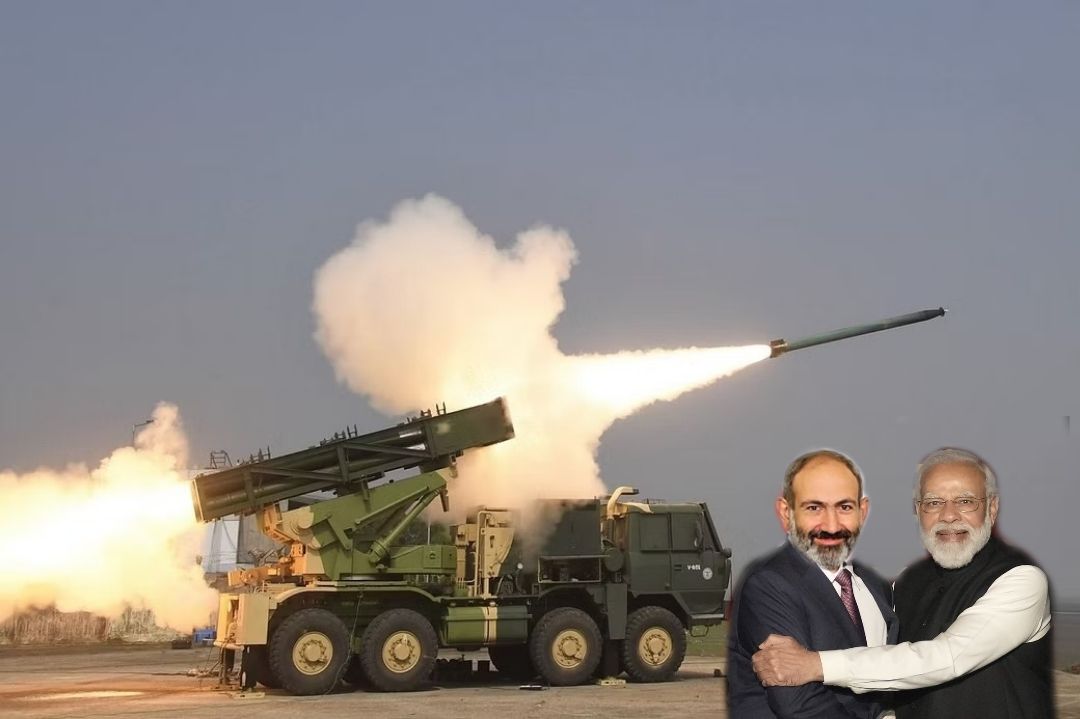
India has recently strengthened its geopolitical position in the South Caucasus by exporting its indigenous Akash anti-air defense system to Armenia. This action raises concerns about potential consequences and the underlying dynamics of long-standing disputes in the region.
The Defense Research and Development Organization’s (DRDO) Akash anti-air system demonstrates India’s technological supremacy with sophisticated capabilities. With an indigenous content of 82%, it demonstrates India’s commitment to a strong defense sector. The 6,000-crore export contract adds to India’s expanding record of military exports to Armenia, highlighting the country’s importance in the global defense industry.
A complicated network of geopolitical concerns is at play behind this seemingly ordinary defense export.
With unresolved conflicts and territorial disputes, the South Caucasus has been home to instability. Armenia and Azerbaijan have a long-standing territorial dispute over Nagorno-Karabakh, which erupted in full-scale fighting in 2020. But this was not the first time a confrontation occurred over the disputed territory. Both countries have gone to war twice in thirty years over Nagorno-Karabakh.
The decision by India to transfer military equipment to Armenia must be examined through the prism of this regional crisis. By giving modern defensive systems to Armenia, India risks becoming involved in the South Caucasus geopolitical chessboard. The Akash anti-air system, which is known for repelling aerial threats, adds a new element to the existing power dynamics.
Diplomatic Balancing
The move also draws attention to India’s diplomatic balancing act, given its historical and strategic ties with Azerbaijan. The latter, a significant energy partner for India, has garnered consistent diplomatic support from New Delhi. However, with India’s recent overtures towards Armenia, a delicate balancing act is required to navigate the complexities of regional geopolitics. Pakistan’s long-standing support for Azerbaijan and its land claims adds another level of complication. Because of Pakistan and Azerbaijan’s historical ties, as well as shared positions on territorial disputes, India’s relationship with Armenia is interpreted as one occupier backing another.
The South Caucasus’ convergence of interests and alliances has the potential to generate a conflict of interest in South Asia.
While India’s pursuit of economic and strategic cooperation makes sense, the complexities of current conflicts and historical grievances should not be overlooked. India’s involvement, even via defense exports, may unintentionally contribute to the escalation and violation of the ceasefire between Armenia and Azerbaijan.
India must approach its engagements in the South Caucasus with a nuanced understanding of the region’s complex geopolitical landscape. Balancing diplomatic ties with both Armenia and Azerbaijan, while actively encouraging dialogue and peaceful conflict resolution, will be paramount. The South Caucasus, with its unresolved disputes, requires careful diplomacy to prevent inadvertent escalation.
India must tread carefully as it navigates the sensitive geopolitical terrain to ensure that its actions contribute to stability rather than accidentally fueling existing tensions. A nuanced and diplomatic approach will be critical to India’s success in establishing itself as a responsible global participant on the complicated chessboard of international relations.


















Leave a Reply